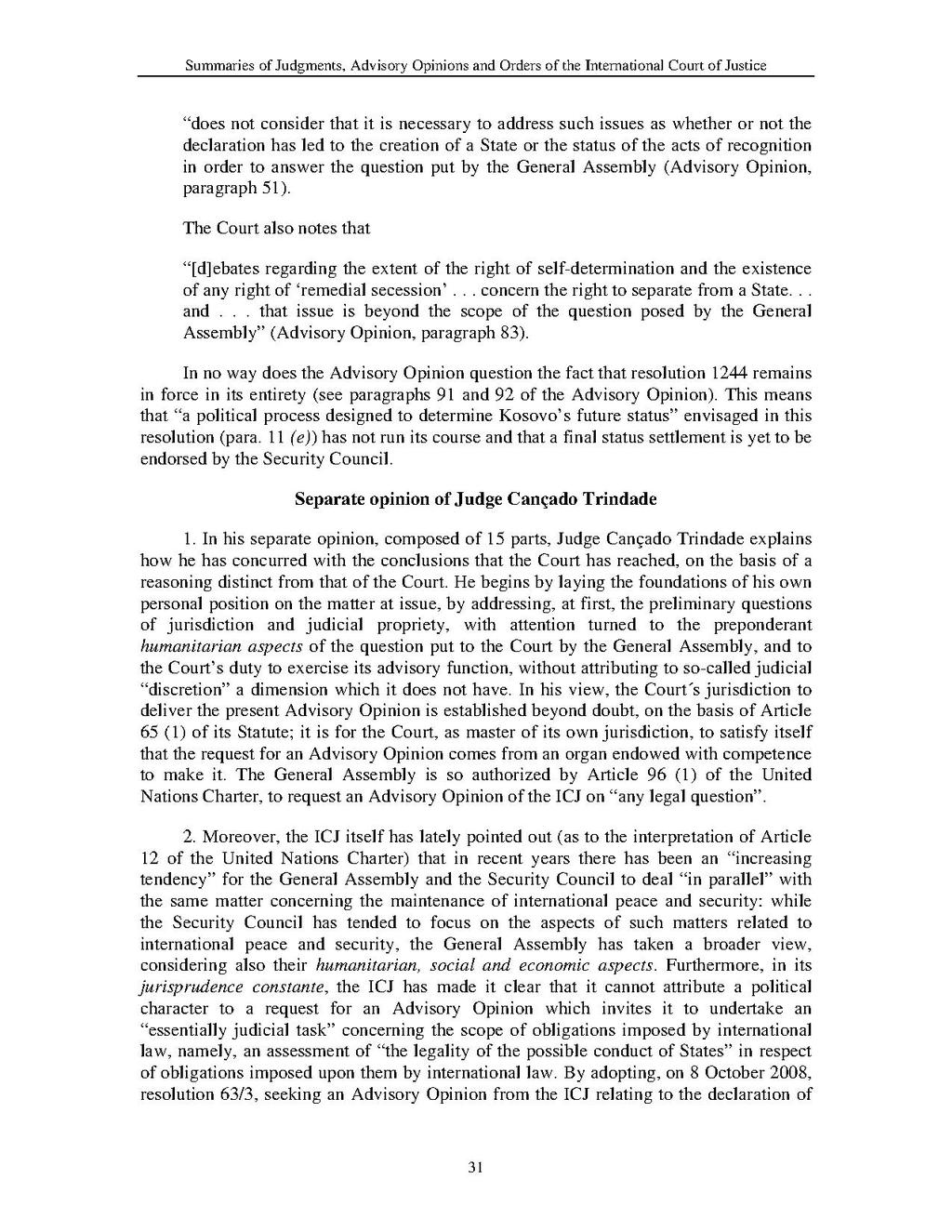Summaries of Judgments, Advisory Opinions and Orders of the International Court of Justice
"does not consider that it is necessary to address such issues as whether or not the declaration has led to the creation of a State or the status of the acts of recognition in order to answer the question put by the General Assembly (Advisory Opinion, paragraph 51).
The Court also notes that
"[d]ebates regarding the extent of the right of self-determination and the existence of any right of `remedial secession'…concern the right to separate from a State…and…that issue is beyond the scope of the question posed by the General Assembly" (Advisory Opinion, paragraph 83). In no way does the Advisory Opinion question the fact that resolution 1244 remains in force in its entirety (see paragraphs 91 and 92 of the Advisory Opinion). This means that "a political process designed to determine Kosovo's future status" envisaged in this resolution (para. 11 (e)) has not run its course and that a final status settlement is yet to be endorsed by the Security Council.
Separate opinion of Judge Cançado Trindade
1. In his separate opinion, composed of 15 parts, Judge Cançado Trindade explains how he has concurred with the conclusions that the Court has reached, on the basis of a reasoning distinct from that of the Court. He begins by laying the foundations of his own personal position on the matter at issue, by addressing, at first, the preliminary questions of jurisdiction and judicial propriety, with attention turned to the preponderant humanitarian aspects of the question put to the Court by the General Assembly, and to the Court's duty to exercise its advisory function, without attributing to so-called judicial "discretion" a dimension which it does not have. In his view, the Court's jurisdiction to deliver the present Advisory Opinion is established beyond doubt, on the basis of Article 65 (1) of its Statute; it is for the Court, as master of its own jurisdiction, to satisfy itself that the request for an Advisory Opinion comes from an organ endowed with competence to make it. The General Assembly is so authorized by Article 96 (1) of the United Nations Charter, to request an Advisory Opinion of the ICJ on "any legal question".
2. Moreover, the ICJ itself has lately pointed out (as to the interpretation of Article 12 of the United Nations Charter) that in recent years there has been an "increasing tendency" for the General Assembly and the Security Council to deal "in parallel" with the same matter concerning the maintenance of international peace and security: while the Security Council has tended to focus on the aspects of such matters related to international peace and security, the General Assembly has taken a broader view, considering also their humanitarian, social and economic aspects. Furthermore, in its jurisprudence constante, the ICJ has made it clear that it cannot attribute a political character to a request for an Advisory Opinion which invites it to undertake an "essentially judicial task" concerning the scope of obligations imposed by international law, namely, an assessment of "the legality of the possible conduct of States" in respect of obligations imposed upon them by international law. By adopting, on 8 October 2008, resolution 63/3, seeking an Advisory Opinion from the ICJ relating to the declaration of
31
